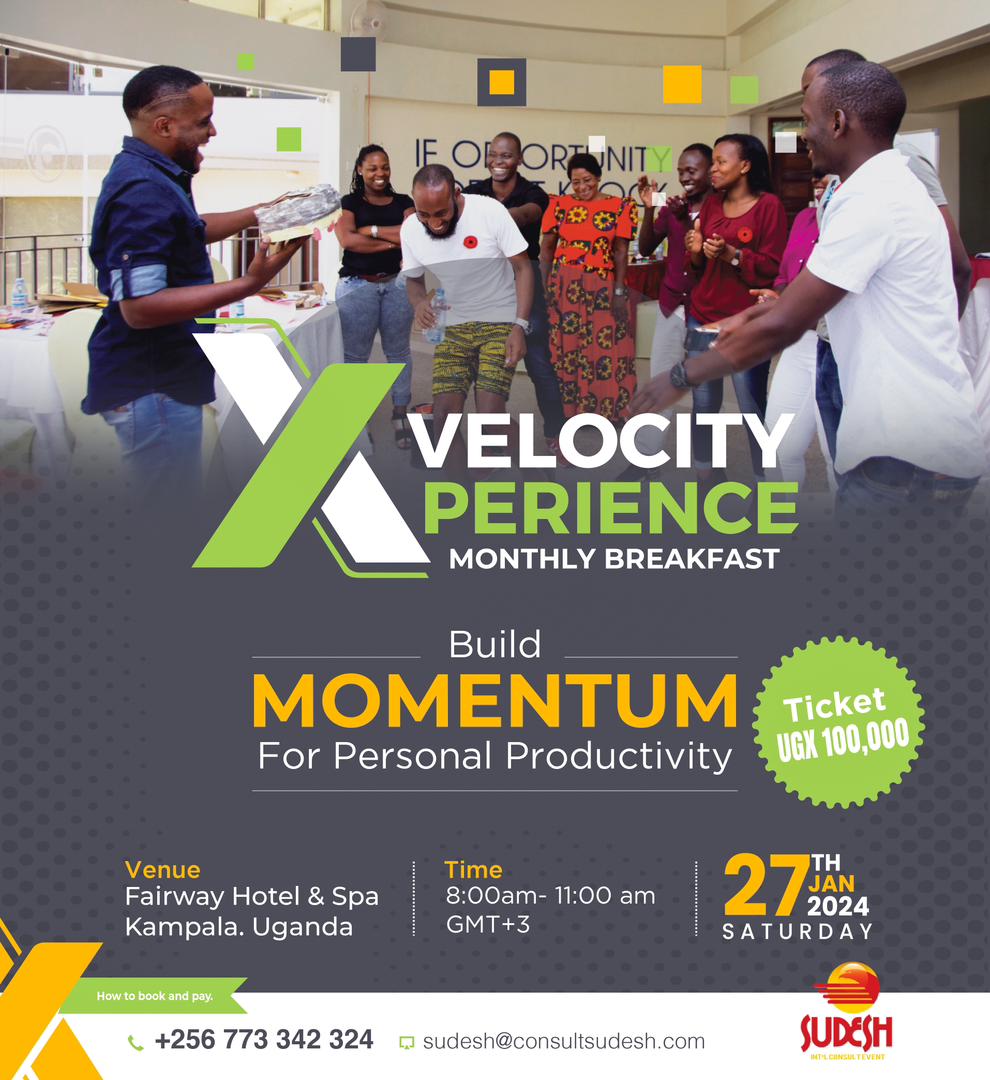Being in the right place at the right time is not a matter of chance, it’s a conscious choice we all make.
Poor timing can cost you a promotion, a pay rise, a job, or even an opportunity. My wife worked with the biggest real estate management Company in Kigali, Rwanda, before we married. While there, she witnessed a timing disaster. Her bosses were slated to meet with some of the biggest real estate investors in the country to sign what would have been the biggest management contract in real estate in the whole of Rwanda. Unfortunately, they showed up ten minutes late. The investors said, “Sorry, we can’t sign the contract with you because you’re late. We don’t trust people who don’t keep their word.”
In 2011, we launched Sudesh Int’l Consult with a simulcast (A conference that was happening in Atlanta, Georgia, was streamed in Uganda and other countries). At the time, getting a 2G connection was a blessing. The buffering speeds were bad, connections were on and off. The client experience of the conference we a disaster. Clients doubted us on opening day. I had to settle for the conference being recorded, shipped via DHL, and played the video on a different day. Needless to write, I lost customers and close to two thousand dollars, which was a lot of money at the time- Poor timing.
Bill Gross has founded a lot of start-ups, and incubated many others — and he got curious about why some succeeded and others failed. So he gathered data from hundreds of companies, his own and other people’s, and ranked each company on five key factors. He found one factor that stands out from the others — and surprised even him. The five factors were:
- The quality of the idea
- The depth of the team and its cohesion
- The Business Model
- The funding or the lack thereof
- The Timing
Based on results from two hundred start-ups, he found out that timing accounted for over forty percent of the failures. Two companies with the same idea, team, business model, and funding would edge another with poor timing. If you’re early, you lose money, if you’re late, you lose the opportunity and money. You need to be on time. For the full TED talk, click here: https://www.youtube.com/watch?v=bNpx7gpSqbY
When is the right time to ask for a pay rise?
When is it perfect to transition from employment to full-time entrepreneurship?
When is the right time to get married, have kids, or go back to school?
Timing is key, but can it be learned? After losing money and opportunities, I set out to study how to harness opportunities in time. I have found out three indicators of right timing: inflection, impact, and insight.
Inflection: External and internal intriguing events must align in some form or shape. Why would you request a pay rise after being put on a Performance Improvement Plan (PIP)? Airbnb started in 2008 when there was a depression, people wanted to go around but save money. The idea made sense. Had they started later or earlier, they would not be the Company they are today.
Impact: The idea should be relevant and create real impact. Getting your PHD in your 80s is not going to have an impact except to elevate your status. If you want to go back to school, do it while you still have 30-40 years of active work life. Leaving your job with no plan will have zero impact. Start a business, grow it to a level where you’re leaving work for it will have a durable impact in terms of its growth.
Insight: In business, an insight is a piece of knowledge that provides a deeper understanding of a situation, market, or customer behavior, leading to actionable intelligence and better decision-making. It goes beyond raw data or information by revealing hidden patterns and potential opportunities. Insights help businesses understand the “why” behind consumer behavior, anticipate trends, and make strategic choices that can drive innovation and success. Study the patterns, they will inform you on priorities.
One more thing, the timing to learn Business Development is perfect because growth is not a given. Register:









